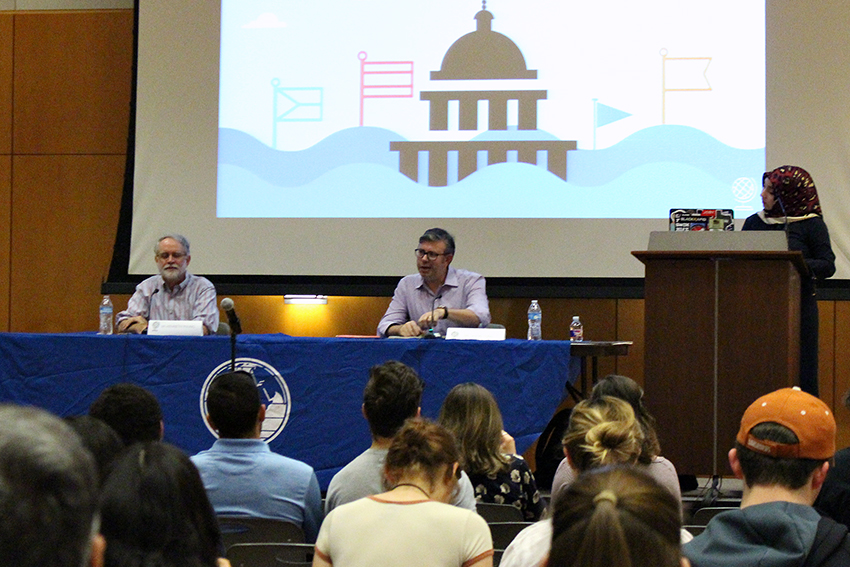In a broader global sense, it’s worth remembering the relationship between climate and policy is not just about the future, said anthropology assistant professor Jason Cons on Monday.
Cons and geography professor Kenneth Young discussed several issues related to climate change, including its impacts on international policy and human rights, at the Politics of Climate Change Roundtable Discussion hosted by the UT International Affairs Society.
“They already have active policies about climate and many initiatives across the globe,” Cons said. “We need to focus on policy now too, not just the future.”
While conducting research in tropical forests in Peru, Young said he learned climate change alters current environmental systems. In order to keep the climate healthy now, individuals need to think about what conserving a forest will mean in a hundred years’ time, Young said.
“I was trained in conservation: keep things the same and repair them back to what they used to be,” Young said. “We are living in a world where that is completely silly. We need a completely new toolkit so we can keep up the system with the times.”
The professors also discussed the effect of climate change on border control.
Cons said some policies are less immediately affected by climate change and more immediately by climate migration.
“We can see a lot of anxieties on how climate change leads to migration patterns with discussions on climate refugee crises,” Cons said. “The effects of climate on border conflicts are likely to be more marked in the ways people continue to secure and plan for migration. We live in an area where more walls are being built than any other time in modern history and this is not likely to stop.”
Even though climate change is not the sole reason why countries choose to enforce their borders, Cons said it is still a driver for the anxieties that generate border conflicts.
Jade Tucker, international relations and global studies freshman, said discussions about climate change are important because they help people grow more aware of environmental issues.
“Not many people see that environment has become a problem since it’s not actually tangible,” Tucker said. “I think a lot of people see the immediate effects and don’t really focus on the impacts climate change can have generations from now.”





















